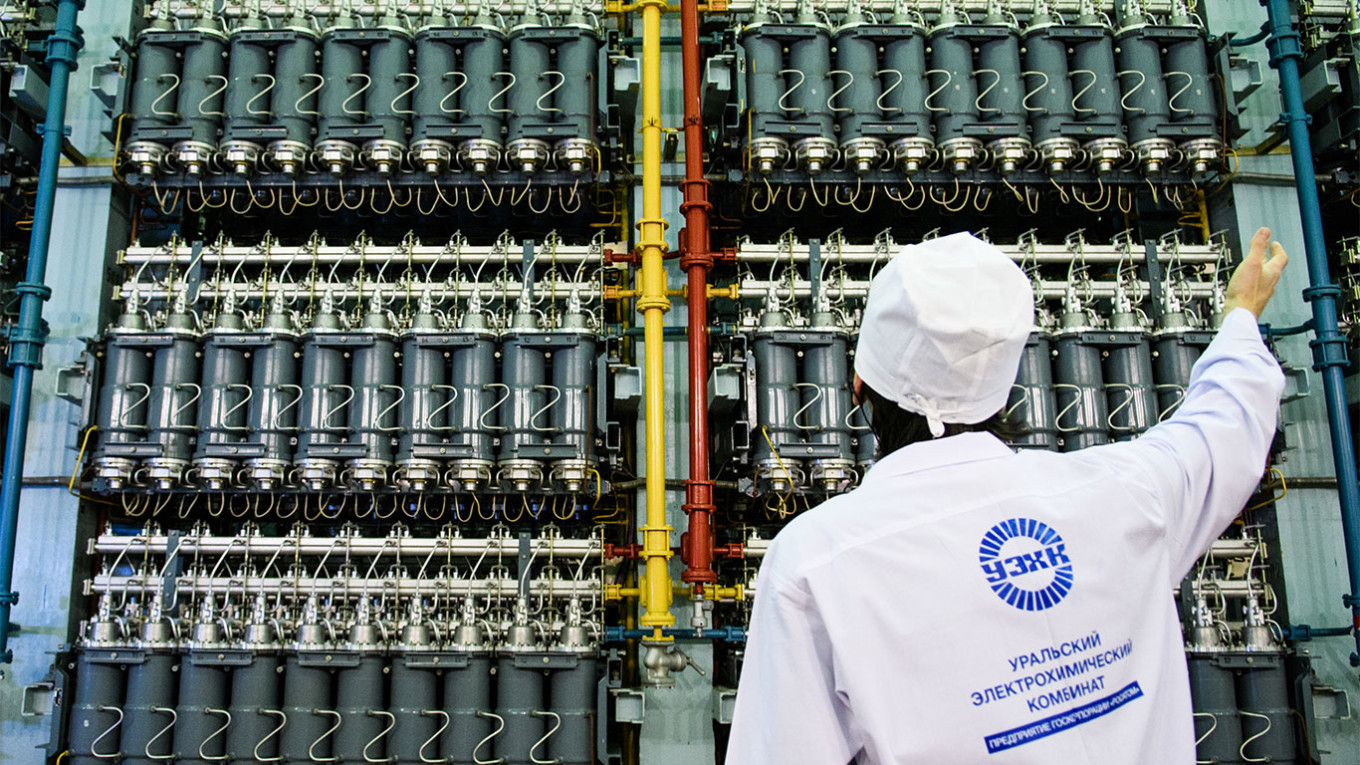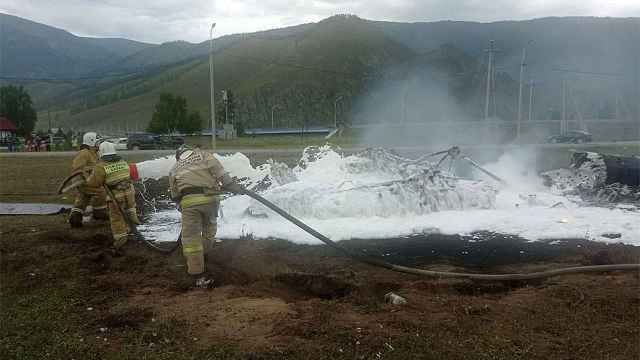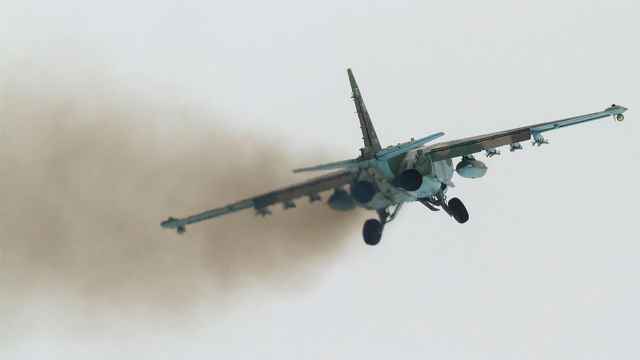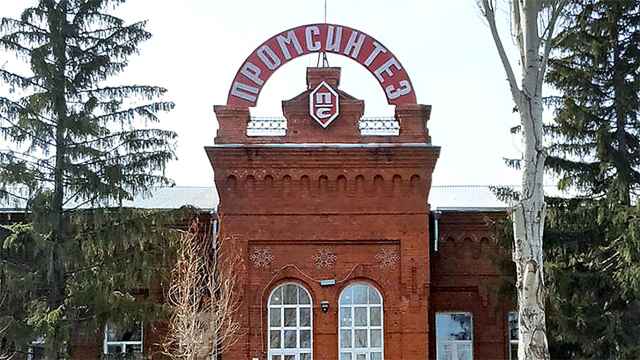An accident at a uranium enrichment plant in central Russia’s Ural mountains has left one worker dead and more than 100 were taken to a hospital for radiation inspections, local media reported Friday.
The plant said there was one “victim” in the depressurization of a cylinder containing depleted uranium hexafluoride, without indicating whether the person was killed or injured. Uranium hexafluoride is a key element in the enrichment process, which produces fuel for both nuclear plants and weapons.
Local news outlet E1.ru, citing anonymous sources, said the person was killed in the incident.
“Something broke off somewhere and everything fell,” an unnamed worker was quoted as saying.
The outlet reported that more than 100 workers of the Urals Electrochemical Combine, a subsidiary of Russia’s state nuclear agency Rosatom, were taken to a nearby hospital for radiation check-ups.
The Urals Electrochemical Combine — which is located in the closed town of Novouralsk in the Sverdlovsk region — said staff at the workshop where the incident took place were evacuated and sanitation work was underway at the site.
Radiation levels at the plant and the surrounding area were normal and the accident posed no threat to public health, it said, adding that the causes of the incident were being established.
The Sverdlovsk region branch of Russia’s Investigative Committee, which probes major crimes, launched an inspection into the accident.
The Urals Electrochemical Combine accounts for half of Russia’s uranium enrichment, as well as 20% of global uranium enrichment. More than 80% of the plant’s production is made for export.
Nearly a dozen countries rely on Russia for more than half of their enriched uranium, according to a report by The New York Times.
The United States relies for one-third of its enriched uranium on Russia as part of a 1993 deal to import Russian weapons-grade uranium, in what was seen as a post-Cold War era de-escalatory gesture.
A Message from The Moscow Times:
Dear readers,
We are facing unprecedented challenges. Russia's Prosecutor General's Office has designated The Moscow Times as an "undesirable" organization, criminalizing our work and putting our staff at risk of prosecution. This follows our earlier unjust labeling as a "foreign agent."
These actions are direct attempts to silence independent journalism in Russia. The authorities claim our work "discredits the decisions of the Russian leadership." We see things differently: we strive to provide accurate, unbiased reporting on Russia.
We, the journalists of The Moscow Times, refuse to be silenced. But to continue our work, we need your help.
Your support, no matter how small, makes a world of difference. If you can, please support us monthly starting from just $2. It's quick to set up, and every contribution makes a significant impact.
By supporting The Moscow Times, you're defending open, independent journalism in the face of repression. Thank you for standing with us.
Remind me later.






